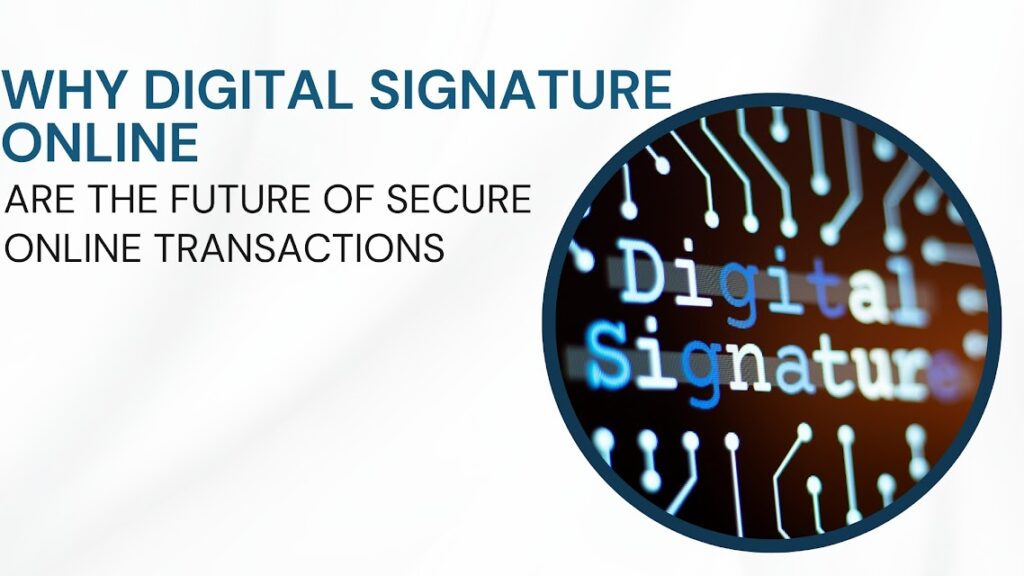The modern workplace is undergoing a digital revolution. As organizations shift to remote work, cloud-based operations, and paperless workflows, digital signatures have emerged as a critical tool for businesses of all sizes. Digital signature online are convenient and provide enhanced security, legal validity, and efficiency, making them indispensable for the future of work.
The Digital Transformation of Workplaces
The Shift to Remote and Hybrid Work Models
The COVID-19 pandemic accelerated the adoption of remote and hybrid work models. Companies worldwide now rely on digital tools to manage contracts, approvals, and transactions. Digital signatures enable businesses to authenticate documents online without requiring physical presence, streamlining operations in a remote-first world.
Paperless Operations and Sustainability
Sustainability is a growing concern for businesses. Traditional paper-based workflows contribute to deforestation and carbon emissions. Digital signatures eliminate the need for physical paperwork, reducing waste and supporting eco-friendly business practices. Organizations embracing digital signatures align with global sustainability goals while enhancing operational efficiency.
Security and Legal Compliance
Enhanced Security Measures
Unlike handwritten signatures, digital signatures use encryption technology to protect documents from tampering and forgery. With cryptographic authentication and identity verification mechanisms, businesses can ensure document integrity and mitigate fraud risks.
Legal Validity Across Jurisdictions
Governments and regulatory bodies worldwide recognize digital signatures as legally binding. Laws such as the eIDAS Regulation in Europe, the ESIGN Act in the U.S., and the IT Act in India provide a legal framework for digital signature adoption. Businesses using digital signatures can ensure compliance with local and international regulations, minimizing legal disputes and enhancing credibility.
Business Efficiency and Productivity
Faster Document Processing
Traditional document signing processes are time-consuming, requiring physical printing, mailing, and scanning. Digital signatures expedite approvals, reducing turnaround times from days to minutes. This efficiency boosts productivity, allowing businesses to focus on strategic growth.
Cost Savings
Adopting digital signatures eliminates costs associated with paper, printing, storage, and courier services. Companies can allocate resources more effectively, by investing in digital tools that drive innovation and profitability.
Seamless Integration with Business Applications
Modern businesses rely on cloud-based applications such as Google Workspace, Microsoft 365, and CRM platforms like Salesforce. Digital signature solutions integrate seamlessly with these tools, enabling organizations to sign, send, and store documents within their existing workflows.
Industry-Specific Applications
Banking and Financial Services
The financial sector is increasingly adopting digital signatures for loan approvals, account openings, and compliance documentation. Digital authentication ensures security while improving customer experience.
Legal and Contract Management
Legal firms and corporate legal teams use digital signatures to execute contracts efficiently. Secure digital signing reduces the risk of lost paperwork and ensures auditability.
Healthcare Industry
The healthcare industry requires stringent compliance with regulations like HIPAA for patient data security. Digital signatures enable secure and paperless medical record management, consent forms, and insurance claims processing.
E-Commerce and Retail
With the rise of online shopping, digital signatures streamline vendor agreements, supplier contracts, and order approvals. Businesses can manage transactions securely without delays.
The Future of Digital Signatures in the Workplace
AI and Blockchain Enhancements
Artificial Intelligence (AI) and Blockchain technology are revolutionizing digital signatures. AI-powered verification enhances identity authentication, while blockchain-based signatures ensure immutable and tamper-proof documentation.
Global Adoption and Standardization
As businesses expand globally, standardized digital signature frameworks will facilitate cross-border transactions. Governments and enterprises will continue to refine regulations, making digital signatures the standard for digital identity verification.
Workforce Adaptation and Training
Companies must invest in employee training to maximize digital signature adoption. By educating teams on best practices, security protocols, and compliance requirements, businesses can ensure smooth implementation and long-term success.
Steps to apply for Digital Signature
Step 1: Visit Our Website
Go to our website to start the process.
Step 2: Fill in Your Details
- User Type: Choose if you are an individual or an organization.
- Certificate Type: Pick if you need it just for signing documents or for both signing and encryption.
- Validity: Choose how long you want the certificate to last.
- Personal Info: Enter your name, phone number, email, and address.
- Agree to Terms: Check the box to agree to the terms.
- Submit: Click the submit button.
Step 3: Choose Token Option
- Already Have a Token?: If you have a USB token, choose “No.” If you need a new one, choose “Yes.”
Step 4: Make Payment
- Payment: Enter your payment details and choose how you want to pay (net banking, credit card, debit card, or UPI).
Step 5: Complete the Process
- Review: Make sure all your information is correct.
- Submit: Click submit and wait for a confirmation email.
Step 6: Get Your Digital Signature
You’ll receive your digital signature on a USB token drive after processing.
Also know about:- What is emudhra?
Conclusion
Digital signatures are no longer an option—they are a necessity for the future of work. With the rise of remote work, paperless operations, and security-driven compliance requirements, businesses must embrace digital signatures to stay competitive. Organizations that integrate digital signatures will not only streamline operations but also contribute to a secure, efficient, and sustainable digital economy.






